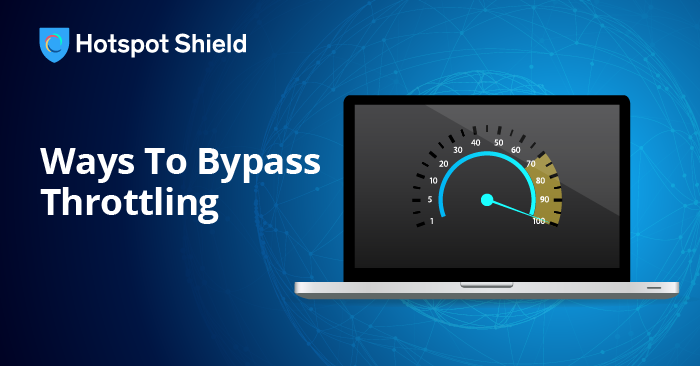How to get a Finnish IP address
The easiest way to improve your digital privacy is to switch your IP address using a VPN. We’ll …

 Picture this: you’re just browsing on your laptop or computer, going to your favorite streaming site, when suddenly the video slows down. You check your bandwidth and internet speed; nothing’s out of the ordinary, but it seems like you’re slowing down anyway. What’s even stranger is that this content access issue seems to keep going back and forth, depending on what sites you go to.
Picture this: you’re just browsing on your laptop or computer, going to your favorite streaming site, when suddenly the video slows down. You check your bandwidth and internet speed; nothing’s out of the ordinary, but it seems like you’re slowing down anyway. What’s even stranger is that this content access issue seems to keep going back and forth, depending on what sites you go to.
If this sounds familiar, you may just have experienced throttling – the deliberate (or undeliberate) decrease in quality of your internet speed and bandwidth when accessing certain sites, or when your ISP’s servers limit your connection for whatever reason.
It’s a growing problem that’s been plaguing internet users more and more frequently, and since current laws don’t protect the users, they’re forced to get creative. But how can you avoid throttling?
It’s a good idea to take a look at WHY throttling happens in the first place. Legally speaking, while somewhat inconvenient for the users, throttling has a very specific purpose — and to be honest, it’s not entirely bad.
Here are a couple of reasons why your connection may be throttled by your ISP:
Unsurprisingly, the last scenario is often the most unpleasant of scenarios when it comes to throttling. In any case, if you find yourself experiencing this one way or the other, there’s one guaranteed solution to avoiding it entirely.
Virtual Private Networks (VPNs) are the ultimate answer to data throttling, as well as a host of other issues when it comes to your ISPs. How so? VPNs encrypt and secure your data. More importantly it funnels them through their own private servers, effectively bypassing normal ISP restrictions that lead to throttling.
This is because when using a normal connection, your data is often funneled through the servers of your ISP. This means that aside from seeing where you go online, they also have the choice to restrict how fast or how open your data is when visiting these sites.
A VPN acts like a shield, allowing you to bypass these restrictions entirely. By encrypting your data packets, your ISP will be unable to affect your data traffic at all. It’s not even limited to your ISP – some of the better VPNs in the market can even go through geographical throttling, allowing you access content in areas that you normally can’t.
Throttling is bothersome business, but there is a simple solution – and one that’s readily available and reliable for the market. With VPN as a tool, you’ll never have to worry about content access restrictions again.
Hotspot Shield is a VPN that packs a punch when it comes to internet security. With our VPN, you can gain access to any restricted website on the internet. Hotspot Shield also comes packed with a ton features for your privacy and security online such as data encryption, anonymous browsing, malware protection, and Wi-Fi security.
It’s available for free on Windows, Mac OS, Android, and iOS. You can also check out our blog to see our other posts about content access and cyber security.
